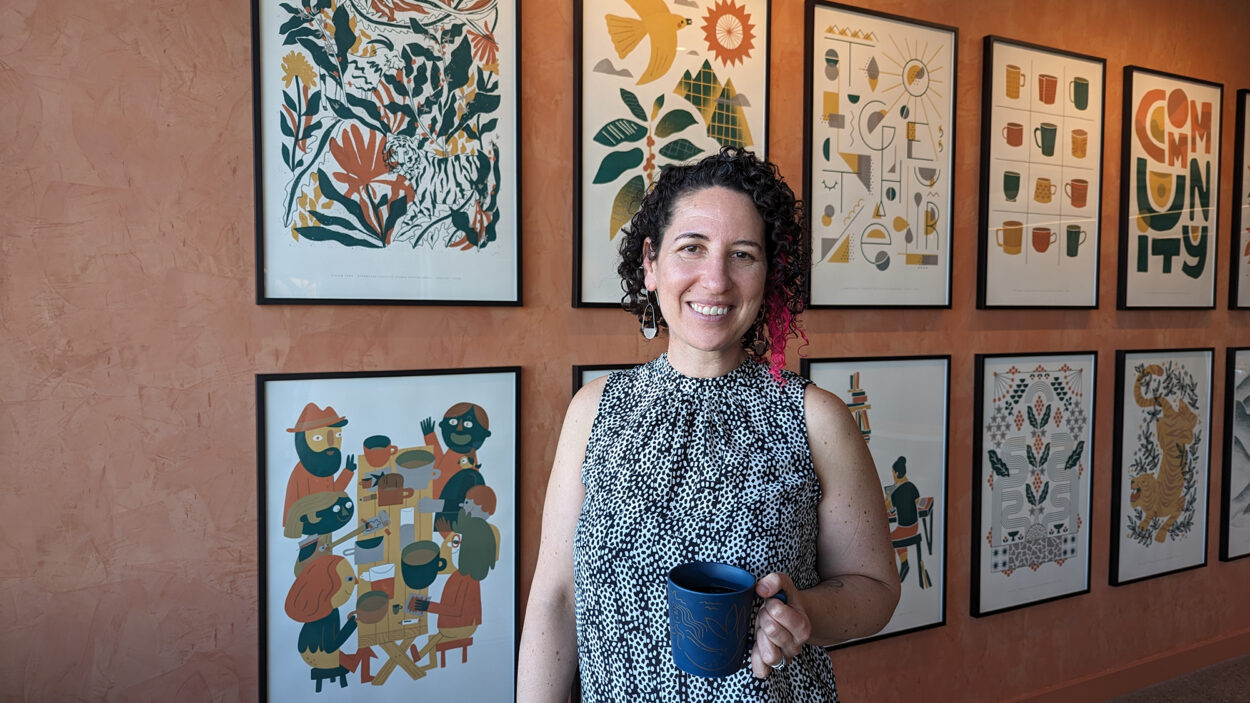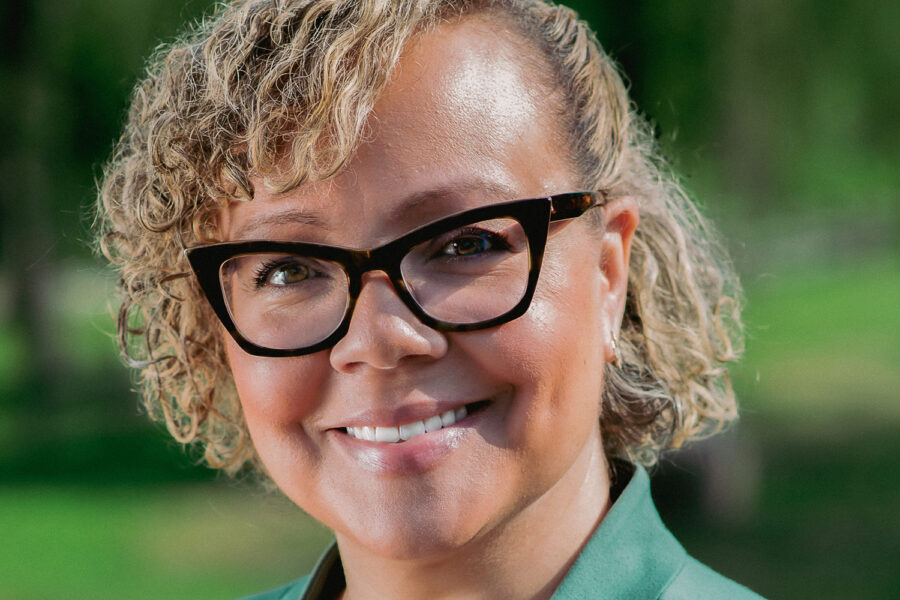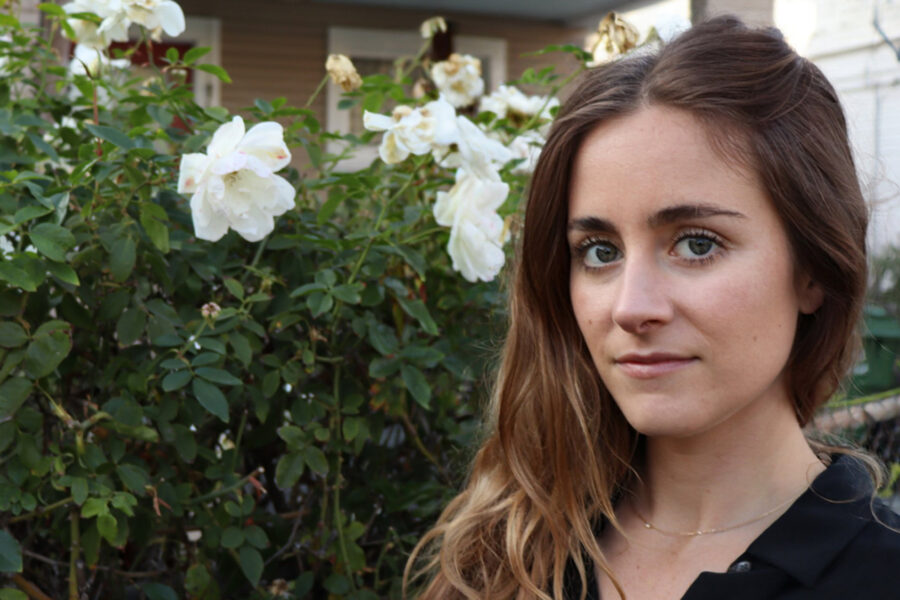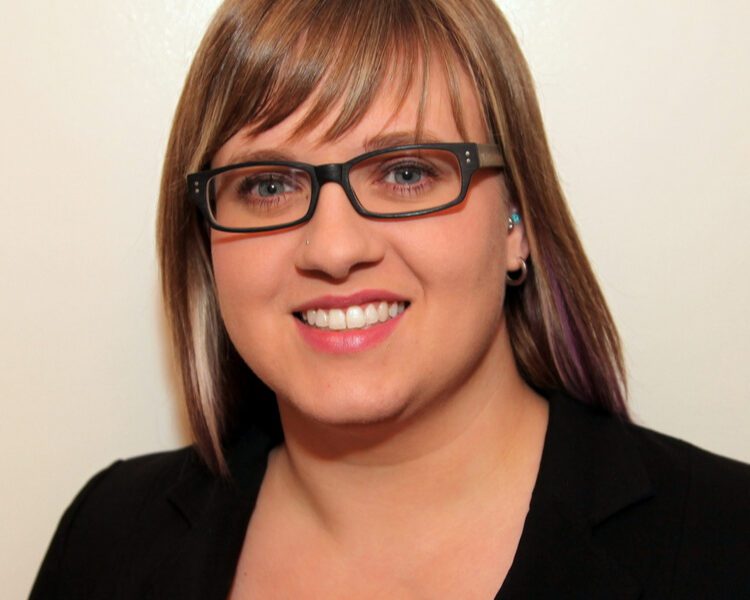In the bustling heart of San Francisco’s SoMa District, Becky Elias experienced a memorable turning point in her career. She had just graduated from the University of Michigan with a degree in English and Gender Studies and was working as a server at Oola Restaurant under the mentorship of Chef Ola Fendert. One afternoon, Fendert gathered the servers around intricately plated food and said, “I want you to think of yourselves like docents in an art museum. You are the extension of my work to the customer.”
What struck Elias wasn’t just Fendert’s comparison of food to art. It was how he encouraged servers to perceive themselves as vital to the overall artistic experience. Servers were not merely food conveyors; they were experts in ingredients and culinary techniques and gauging each customer’s desired level of engagement with this knowledge. Explains Elias, “It was such a beautiful, eye-opening way of being attuned to our audience while also honoring Fendert’s passion and artwork.”
Realizing she was an essential link in a chain of people from farmers to delivery people to line chefs—all of them working together to create food experiences for others—changed Elias’ relationship with the food industry. By honoring customer experience, she was honoring the food, which meant honoring the land and the labor of everyone who made dining experiences possible. “As my career has moved through different facets of the food system,” says Elias, “I am always asking: How do you honor and create dignified work conditions for everyone throughout the entire food system?”
Elias has held a myriad of roles, from crafting fresh-pressed waffle cones for ice cream parlors to working at co-op grocery stores. She has facilitated workshops with farmers, food processors, and school nutrition directors to include more fruits and vegetables in school meals, and she has played pivotal roles innovating public policies around food access and food safety. And in her current role, which she began in 2018, Elias serves as the Director of Global Retail Food Safety and Public Health at Starbucks. Here, her mind moves between technical details and macro policies as she and her team apply food safety science, business operations and regulatory policy into the design and operations of Starbucks cafes. But ultimately, Elias wouldn’t be able to do the impactful work she is doing today if she hadn’t picked up wisdom and skills on her winding journey through food.
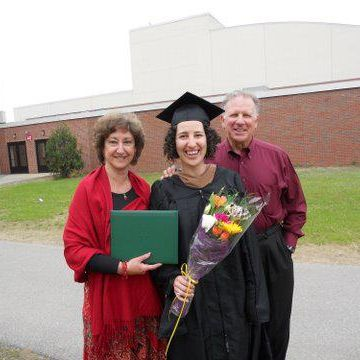
Carrying on A Legacy of Public Service
Embedded within Elias’s core values is a profound dedication to community-building. She inherited this legacy from her family’s lineage of public sector workers, at the heart of which stands her maternal grandfather, a forester whose work with the United Nations significantly contributed to the development of Food and Agriculture initiatives throughout the world during the 1940s and ’50s. Elias says, “At the time, he was asking questions like ’How do you quantify the communal, economic, and environmental value of agriculture and forest land?’And, ’What are the economic impacts of enabling common terminology for food and agricultural trade?’” Today, Elias shares the same terrain of thought. Like her grandfather, she uses economics as a way to build bridges between social and environmental issues.
It was her parents, on the other hand, who most kindled her passion for service. Elias explains, “My parents’ careers in public service provided my brother and me with an unspoken yet explicit framework for careers characterized by stability and purpose, which brought them immense satisfaction through their contributions.”
Yet, finding purpose within one’s chosen profession is a winding path, often filled with moments of internal resistance. Elias remembers a conversation she had with her father when she was in high school working at an ice cream shop where she said to him, with absolute conviction, “I don’t know what kind of job I’m going to have, but I’m not going to serve food and wear a hairnet.”
Today the irony is not lost on Elias that food service is a thread that connects every one of her professional experiences. But she knows that the deeper connective tissue is her commitment to building healthy communities through sustainable food systems. As she says, “We nurture and enrich our bodies through food. We learn about cultures through food. We enable people to live healthy lives through food. The environment is deeply impacted by how we grow, transport, eat, and dispose of food.”
Noticing Disconnects, Bridging Gaps
In 2006, Elias stopped working at Oola, where she had risen to the level of Executive Pastry Chef. As a next step, she ventured into California’s public school food system, teaching nutrition and cooking classes to elementary school students within the Hayward Unified School District. While doing this work, she explains, she began to notice that “there was a disconnect between the food we handled and talked about in our classes and cafeteria meal programs. There were disconnects between the food grown in our gardens and the food ecosystem where families would shop and eat.”
In an effort to bridge these differences, Elias and fellow educators in the nutrition program took the initiative to establish farmer’s markets near the district’s schools, with the hope that increased access would allow families to diversify the food ecosystem that they had access to. As they pursued this change, though, they stumbled into a complex web of considerations around food permitting, policy, and profitability for the farmers. Eager to examine these concepts further, in 2008, Elias joined CitySeed, a non-profit in Connecticut focused on exactly that—expanding food access and farmer viability through a network of farmers markets and staffing a Food Policy Council aimed at enhancing school food. These experiences were pivotal for Elias. They sparked her curiosity about the systems that govern food availability, access, and distribution, and she eventually realized that if she wanted to enact change on a systemic level, she would need a deeper understanding of the economic forces shaping food production, distribution and access.
What she needed was formal training—which probably meant getting an MBA.
So she started exploring graduate schools. The Antioch MBA (which was then offered on the New England campus) stood out immediately as one of the rare programs that embraced a holistic approach to business. Antioch’s unique perspective focused on the triple bottom line: it considered people, the environment, and profit as the key metrics in determining business viability. This comprehensive economic philosophy deeply resonated with the values instilled in her by her family and work experiences.
What set Antioch apart even further was its flexibility in higher education, enabling Elias to continue her professional career, which included moving to Seattle midway through the program to work for the Washington State Department of Agriculture as a Farm-to-School Project coordinator. She ended up focusing her MBA practicum on Farm-to-School, and this epitomized one of the most valuable aspects of her Antioch education for Elias: the permeability between classroom, profession, and life experiences.
“Most of us were working while we were in school,” she says. “We had people in their early twenties through their early sixties, meaning we had a huge range of life and career experiences. Across our cohort, people had aging parents living with them, people had kids, who were having kids. We had people getting married. We had people getting divorced. We had people who experienced death in the family.” Elias was especially struck by how her department chair, Polly Chandler, honored the complexities of everyone’s life—and invited them to bring that experience to their studies.
Over the last decade as Elias has moved into positions of greater leadership and management responsibility, she has often thought back to this formative environment. Perhaps the biggest thing that the MBA taught her—in addition to organizational development and business strategy—was to see the value gained when an organization embraces the work and life experiences and perspectives that individuals bring.
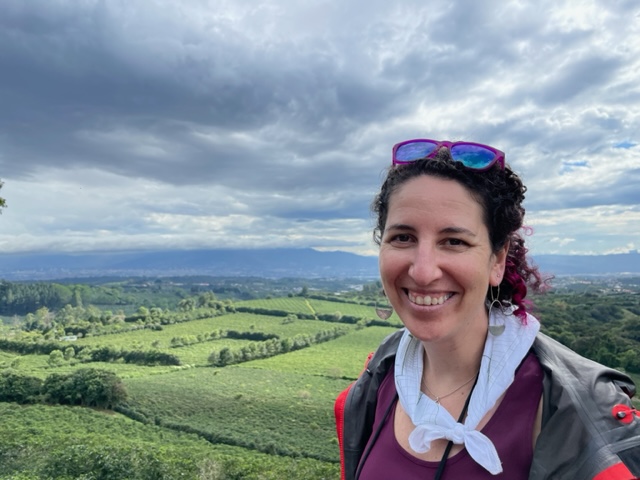
Building Trust, Systems, and Public Health
During her graduate studies, Elias found herself thinking more and more about ways that food safety and public health could be understood through the framework of trust. Policies and regulations, she realized, should foster trust between food producers and consumers—and to do that they would have to adapt as the food landscape evolved, to ensure that all stakeholders, from consumers to restaurateurs, trusted that regulations and policies were upholding public health standards and working towards collective well-being.
In 2016, while managing the Food and Facilities Program for Public Health – Seattle and King County, Elias oversaw a 65-person inspector team that was responsible for 12,000 food businesses and 1,100 water recreation facilities. She led the team to look for ways to innovate bureaucratic procedures to further build trust between different entities. Despite an effective educational approach to inspections, inconsistencies around food inspection reports were causing restaurateurs to distrust the accuracy of food inspection evaluations. Elias partnered with Stanford Law professor Daniel E. Ho, and together, they co-designed an experiment that sought to address this problem through a peer review approach to inspections and evaluations.
For sixteen weeks, randomly selected food inspectors participated in what Elias and Ho called an intensive peer review process. Historically, Seattle & King County food inspectors worked alone, but Elias and Ho wanted to see what would happen when inspectors were partnered and their reports compared.
Their findings revealed that inspectors documented findings differently 60% of the time when observing identical conditions, which accounted for the inconsistency and variability that had led to mistrust. Not only did their discovery help inform the development of training sessions and documents that would work towards creating consistency among inspectors, but King County adopted peer review as a standard practice and launched a first-of-its-kind food safety rating program.
Today, as the Director of Global Retail Public Health at Starbucks, a multinational organization with more than 35,000 stores in over 80 countries, Elias continues to think about public health with an eye toward innovation and systems design. At the foundation of her day-to-day thinking is visualizing how small changes within systems can yield profound and far-reaching impacts. As Elias explains, “While working for a global company of this size and scale, I have marveled at how my mind constantly gets stretched between macro- and micro-economics. Moving between the macro and the micro adds to the complexity of how I think, but it also keeps decisions, which could become daunting and overwhelming, grounded.”
Reflecting on her career and its evolution, Elias perceives similarities rather than differences between her experiences in the public and private sectors. On a recent Zoom call, she gestured to this harmony by swaying her body from one side and then to the other, revealing two awards framed on her office wall: one from Starbucks, the other from King County. In both cases, she was being recognized for her hard work—her life’s work—in making food systems safer, more trustworthy, and more effective for everyone.

